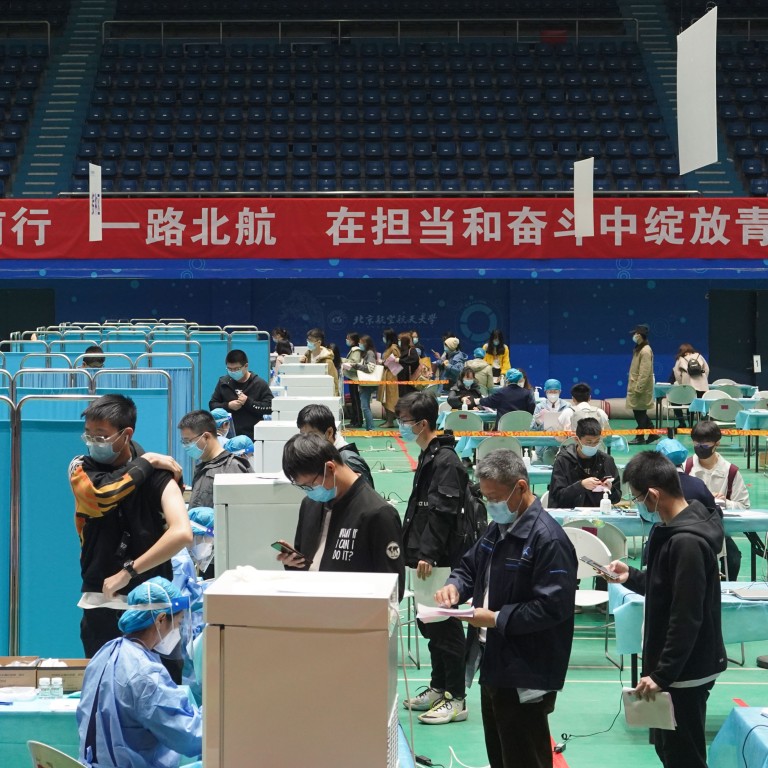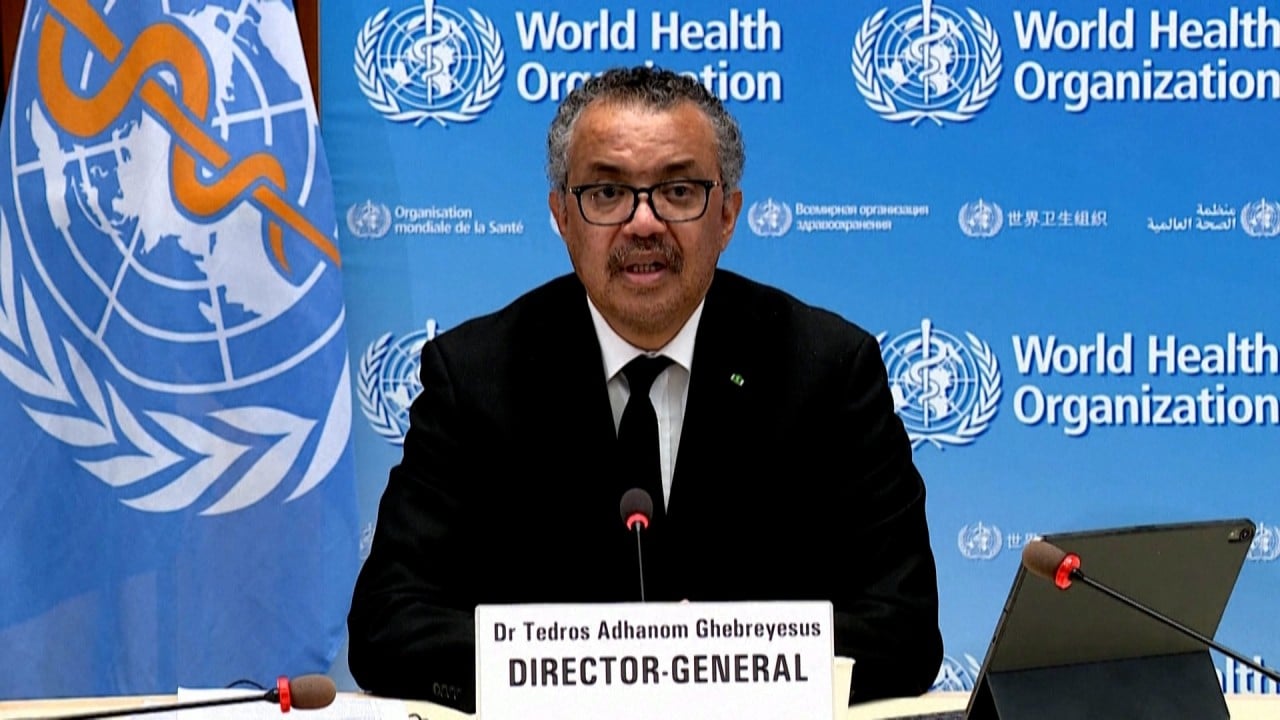
China coronavirus: Beijing vaccinates over 70 per cent of population in lead-up to Winter Olympics
- Beijing has administered 33.4 million doses, including to 15.6 million people who have completed their regimen
- China has closed its borders to most foreigners except holders of business visas, with borders set to stay closed until China has a high level of vaccination
As the capital prepares to host the Winter Olympics, Beijing has become the first Chinese city to inoculate more than 70 per cent of its population.
Beijing has the highest rate of vaccination in the country, with 33.4 million doses administered. By Thursday, more than 966.6 million doses had been given, and the 1 billion dose milestone was in sight.
Beijing, which is expected to host the Winter Olympics in February, remains largely closed with some direct overseas flights directed to other cities first. High-level meetings have been held as video conferences or hosted in other provinces.
The capital has scheduled a series of events later this year. The Asian Open Figure Skating Trophy, which serves as a test event for the Olympics, will be in Beijing from October 13 to 17. The Second United Nations Global Sustainable Transport Conference, which was postponed from May last year, is expected to be held in October. It is not yet clear whether the UN conference will be held virtually.
Will slow approval of BioNTech and other foreign vaccines block China from reopening its borders?
Asked whether any international events would be held in the capital, the Ministry of Foreign Affairs said in a statement: “We will take full account of the global epidemic control situation in preparing for events involving foreigners”.
Public health experts have repeatedly urged the public to be vaccinated quickly. They aim to inoculate at least 70 per cent of the population to reach herd immunity at which point outbreaks will be self-limited and protection can be offered to those who are not inoculated.
It is still unknown what percentage of inoculation will establish this immunity barrier, but experts generally accept that at least 70 per cent of the population must be vaccinated, depending on the protection offered by the vaccines and the transmissibility of the virus.
China has closed its borders to most foreigners, allowing only business visa holders to enter after strict coronavirus testing and a long quarantine period. The borders look set to remain closed until China reaches a high level of vaccination.
Earlier this month, an unidentified official with the National Health Commission told mainland magazine Caijing that China aimed to inoculate 75 to 80 per cent of the population by October, since China has been steadily scaling up its vaccine supplies.
China should build surveillance system to track coronavirus variants, says top virologist
When 800 million to 900 million people are fully inoculated in the second half of the year, the commission would “pilot to change epidemic control measures in localised areas”.
The plan was not final and it would be a slow, gradual process, even if the measures were changed, the official was quoted as saying.
Zhang Wenhong, director of Huashan Hospital’s department of infectious disease in Shanghai, estimated China could open its borders to countries with a low prevalence of the virus in the first half of the year if vaccination accelerated.



